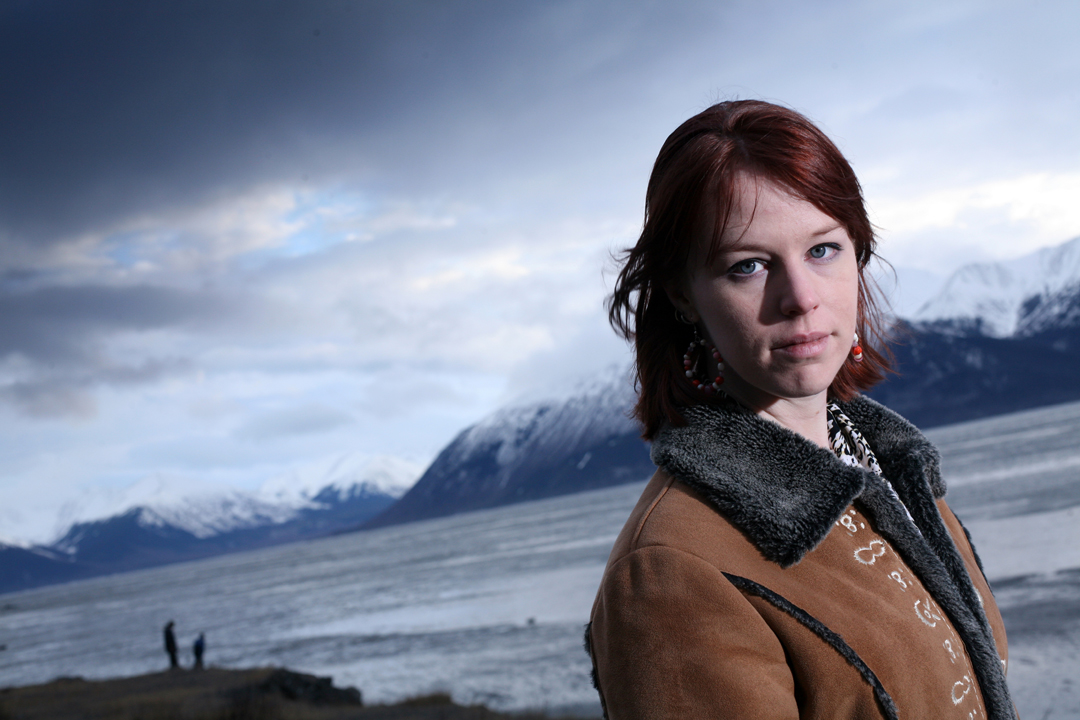Marian Call is an Alaskan chanteuse who found an audience after winning a Firefly-related
song contest in 2007. She has run her music career as an independent
grassroots effort ever since. She connects with her fans constantly and
directly, both through social media and crowdfunding, and sleeping on
their floors during tours and house concerts. She spends a lot of time
on the road, and we talked in person (appropriately enough, in my living
room) right after GeekGirlCon 2013 in Seattle in October. She lives on Twitter @mariancall and is currently on tour in Europe.
Support The New Disruptors directly as a patron at Patreon
starting at $1 for each podcast episode, with on-air thanks, premiums,
and more at higher levels of support. We do this show with your help.
Sponsorships
Sponsors
also underwrite the cost of producing this program, and we love learning
about our sponsors’ products and services so that we can tailor an
informed description for our audience. If you’d like to sponsor the
podcast, contact Lex Friedman at Podlexing for details!
Show Notes
Marian didn’t watch Firefly when it first aired, but she came to the show and loved it later. Her winning song was about the character Saffron, played by Christina Hendricks, and was called, “It Was Good for You Too.” It became part of the album Got to Fly, which was commissioned by Quantum Mechanix, and contains songs inspired by both Firefly and Battlestar Galactica.
Marian cites the influence of They Might Be Giants (listen to a great interview on Unprofessional of one of the two leadmen, John Flansburgh) and Jonathan Coulton, who I interviewed about his life’s work and his collaboration with Greg Pak on a comic-book series derived from his songs. We mentioned my recent interview with Devin Lucas, the director of the upcoming film about Dr. Demento.
Napoleon Dynamite also affected her profoundly. Spoiler horn! Some secrets are given away. (Thanks to Jason Snell for loaning me the spoiler horn from The Incomparable.)
Buffy or Willow? The eternal question, but Marian hasn’t watched Buffy: The Vampire Slayer. However, Joni Mitchell and Weird Al Yankovic get shout-outs.
She’s a big fan radio stations, public and otherwise, and notes that KidStar (KKDZ-AM) was part of her childhood, but it didn’t survive for long, sadly. KSKA in Alaska is where she learned to edit audio.
Neither of us could remember the group that was very early in asking
for Internet-based patronage of its music. It wasn’t Trent Reznor, and
we know Radiohead
came later with a pay-as-you-want approach. Marian recalls one reward
was signed drum skins. Does anyone remember who we’re thinking of?
Marian’s Donors’ Circle
was a self-created patronage system she posted in 2009, and it let her
pick up pieces of her life (almost literally), return to Alaska, and get
back to writing music in earnest. (Please note her correct use of the
apostrophe.) Painting and Experience in Fifteenth-Century Italy
explains the everyday nature of contracts with patrons that described
requirements as specific as the type and quantity of blue paint.
Bach composed the Goldberg Variations
for Count Kaiserling, an insomniac, who hired Johann Gottlieb Goldberg
to perform for him during sleepless nights. Bach was paid “with a golden
goblet filled with 100 louis-d’or.” Or it’s possibly a made-up story.
Indie Alaska creates small documentaries, and shot this 5-minute profile of Marian. A female troubadour was called a trobairitz. Steve Martin’s early-life autobiography, Born Standing Up,
explains how he spent years touring constantly before becoming an
overnight success — and then so popular he quit stand up entirely. Wowbagger the Infinitely Prolonged in Douglas Adams’ Life, the Universe and Everything is bored of his immortality.
Marian funded her European trip and resulting live album with a series of quests! R. Steven coped with the heartbreak of USB duplication for his Kickstarter. Radiolab had an episode
on the problem with generosity that comes in the wrong direction: blood
donated after crises in which donated blood wasn’t needed.

